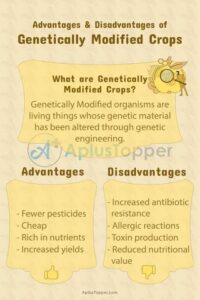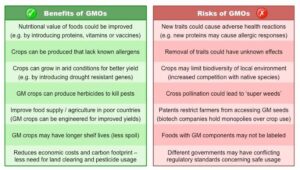Back to: Botany 400 Level
Hello, my sharp Afrilearn learner! I hope say you’re ready to go deeper into the world of biotechnology today! In this lesson, we’re going to look at an important topic — Regulations and biosafety, both in Nigeria and globally. While genetically modified organisms (GMOs) and other biotechnological advancements bring great benefits, they also come with their own set of challenges. That’s where regulations and biosafety measures come in — they ensure that these technologies are used safely for both humans and the environment. Let’s break it down, so you can understand how all these pieces fit together!
Regulations and biosafety in Nigeria and globally
As the world moves towards using more advanced technologies, especially in agriculture, biosafety has become a very important topic. It’s all about making sure that new technologies — like GMOs or any other biotechnology products — are safe for the environment, for human health, and for animals. So, what do we do to make sure we’re doing things the right way? Regulations help guide us in this process. Let’s look at how Nigeria and the global community handle this responsibility.

Regulations and Biosafety in Nigeria
- National Biosafety Management Agency (NBMA) In Nigeria, the National Biosafety Management Agency (NBMA) is the body responsible for regulating and ensuring the safe use of GMOs and biotechnology products. The NBMA was established in 2015, and it plays a crucial role in overseeing the development, importation, and use of GMOs in Nigeria.
- Biosafety Guidelines The NBMA has put in place guidelines to ensure that GMOs are safe for use. This includes thorough risk assessments to evaluate the potential impact of GMOs on the environment, human health, and biodiversity. If a new GMO is developed, it must go through several stages of testing and approval before it can be released into the market or planted in fields.
- Regulations for GMOs In Nigeria, the Biosafety Act of 2015 governs the release, use, and importation of GMOs. The Act provides clear guidelines on the processes that must be followed to ensure that any GMO released into the environment is safe. It also addresses issues like the labelling of GMOs, ensuring that consumers can make informed choices.
- Public Awareness and Education Along with regulation, the Nigerian government has also been working to raise public awareness about the safety and benefits of biotechnology. This includes educating farmers, researchers, and the general public about the potential of GMOs to improve agricultural productivity and tackle food security.
Global Regulations and Biosafety
- Cartagena Protocol on Biosafety Globally, one of the key international agreements on biosafety is the Cartagena Protocol on Biosafety, which is part of the Convention on Biological Diversity (CBD). This protocol provides international guidelines for the safe handling, transport, and use of GMOs, with an emphasis on protecting biodiversity and ensuring that GMOs are used responsibly.
- Regulations in Other Countries Different countries have their own regulations when it comes to GMOs, and these regulations can vary widely. For example, in Europe, the European Union (EU) has very strict rules on GMOs, including comprehensive risk assessments, labelling requirements, and regular monitoring. On the other hand, in the United States, GMOs are regulated by multiple agencies, including the Food and Drug Administration (FDA), the Environmental Protection Agency (EPA), and the United States Department of Agriculture (USDA).
- Risk Assessments A key part of global regulations is the requirement for risk assessments before a GMO can be approved for release. This assessment looks at the potential effects of the GMO on the environment, human health, and biodiversity. These risk assessments are done by scientific committees and are designed to ensure that GMOs are safe before they are released into the environment.

- Labelling and Consumer Choice Many countries, especially in Europe, require that GMOs be clearly labelled, so consumers can make informed choices about the food they purchase. This allows consumers to decide whether they want to buy products that contain GMOs or not.
Summary
- In Nigeria, the National Biosafety Management Agency (NBMA) regulates the use and safety of GMOs, ensuring they meet strict biosafety standards through risk assessments and the Biosafety Act of 2015.
- Globally, regulations like the Cartagena Protocol on Biosafety guide countries in safely managing GMOs, with risk assessments and labelling ensuring consumer safety and environmental protection.
- Different countries have different regulatory approaches. While the EU is known for its strict GMO regulations, the US has a more flexible system involving multiple regulatory bodies.
Evaluation
- What is the role of the National Biosafety Management Agency (NBMA) in Nigeria?
- Name the international protocol that provides guidelines for the safe use of GMOs globally.
- How does the European Union’s regulation of GMOs differ from that of the United States?
- Why is labelling of GMOs important for consumers?
You’ve just explored how both Nigeria and the world regulate GMOs to keep us safe and ensure that biotechnology is used responsibly. Whether it’s the work of the NBMA or the global efforts through the Cartagena Protocol, these regulations play a huge role in shaping the future of biotechnology. Keep up the fantastic work — you’re on the path to becoming a leader in plant biotechnology, and I can’t wait to see what you’ll learn next! Keep shining, and let’s move on to the next topic with excitement!
